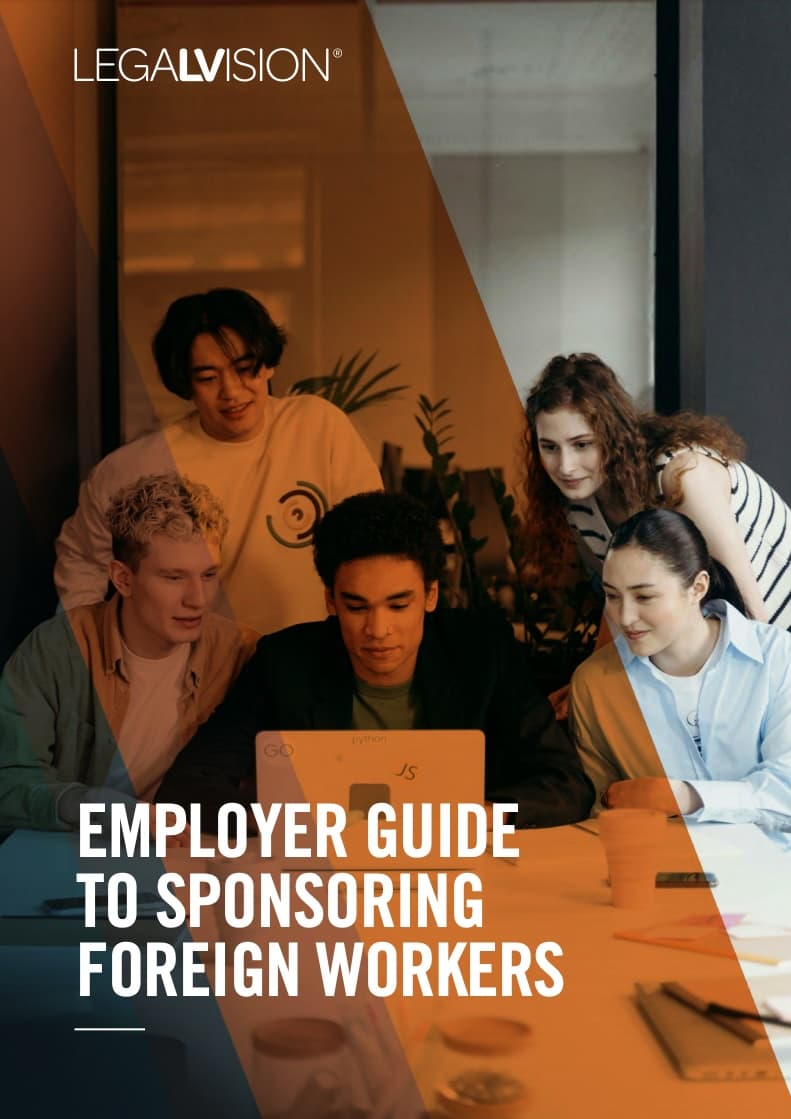Due to the COVID-19 pandemic, the Australian Government put in place a framework of border restrictions and travel exemptions in early 2020 to control entry and exit through Australia’s borders, even for Australian citizens. Now, as vaccination rates against COVID-19 increase in Australia and worldwide, border regulations are changing frequently and gradually. Over the past few months, we have witnessed a significant relaxation of border restrictions. Until recently, only Australian citizens, permanent residents, immediate family members (including parents) and eligible visa holders had the right to enter and leave Australia without an exemption. However, on 7 February 2022, the Australian Government announced that effective as of 21 February 2022, all visa holders that are fully vaccinated will no longer require a travel exemption to enter Australia. Therefore, this article will explain the changes to the Australian border policy that comes into effect on 21 February 2022.
Can I Leave Australia?
Australian Citizens and Permanent Residents
Unvaccinated Australian citizens, permanent residents, and visa holders must still apply for an exemption to leave the country. The Australian Border Force (ABF) will only exempt unvaccinated outbound travellers if the travel is for one of the following reasons:
- part of the response to the COVID-19 pandemic, including providing aid;
- for your business/employer;
- to receive urgent medical treatment unavailable in Australia;
- because you will be outside Australia for a compelling reason for three months or longer;
- on compelling or compassionate grounds;
- in the national interest; or
- because you are ordinarily resident in a country other than Australia.
Foreign Nationals
Furthermore, as has been the case throughout the pandemic, there are no restrictions that prevent foreign nationals from leaving Australia.
Can I Travel to Australia?
Fully Vaccinated Visa Holders
As of 21 February 2022, fully vaccinated visa holders will no longer have to apply for a travel exemption to enter Australia. To explain, a visa holder has been granted a visa to enter and stay in Australia on a temporary or a permanent basis. Next, the most common visa categories are those visas to conduct work, business, tourism and study. Thus, the removal of the travel restrictions applies to all visa types, including bridging visa holders (BVB). In summary, any valid visa is sufficient for entry to Australia without a travel exemption. However, a pending visa that has not yet been granted does not entitle applicants to travel to or enter Australia.
Unvaccinated Visa Holders
Unvaccinated visa holders will still need a travel exemption to enter Australia regardless of the type of visa they hold. Some of the common considerations under which an unvaccinated visa holder may be granted an exemption to enter Australia includes the following.
Potential Reasons For an Exemption:
- receiving an invitation by the Australian Government or a state or territory authority to assist in the COVID-19 response and/or it is in the national interest of Australia;
- providing critical or specialist medical services, including air ambulance, medical evacuations and delivering critical medical supplies;
- having critical skills or working in a critical sector in Australia;
- sponsorship by your employer to work in Australia in an occupation on the Priority Migration Skilled Occupation List (PMSOL);
- if you are a student:
- participating in an International Student Arrivals Plan;
- in the final three years of study of a medical university degree;
- in the final two years of study of a dental, nursing or allied health profession university degree; or
- completing year 11 and 12, with endorsement from the Department of Education, Skills and Employment (DESE).
- you are a higher degree research student enrolled in an Australian education institution (including Masters by research and PhD students) with evidence of a current research grant from a Commonwealth agency;
- travelling for compassionate and compelling reasons; or
- you are the holder of a Prospective Marriage (subclass 300) and:
- you applied for a subclass 300 visa on or before 18 August 2020, and you have now been granted your subclass 300 visa. In that case, you are eligible for an inwards travel exemption on 18 August 2021.
So, if you are an unvaccinated person, you must hold a valid visa and receive an exemption to enter Australia before travelling to Australia. Consequently, you can request travel exemptions online, and you must provide evidence to support your travel exemption request.

Sponsoring overseas workers as an Australian business is complicated. Let us simplify it for you with this free employer guide.
Steps for Travelling to Australia
Step 1 |
Only fully vaccinated Australian citizens, permanent residents and visa holders. However, quarantine is dependent on each state or territory of arrival. |
Step 2 |
You must hold proof of vaccination, such as a valid International COVID-19 Vaccination Certificate (Australia) or foreign vaccination certificate. |
|
|
You must complete an Australia Travel Declaration at least 72 hours before your flight. |
|
|
You must undertake a pre-departure COVID-19 test before travelling to Australia. |
|
|
You must present your vaccination certificate and negative COVID-19 test result to airline staff when you check-in for your flight at the airport. |
|
|
Testing and quarantine on arrival is determined by each state. Check the requirements of your state of arrival here. |
Key Takeaways
As of 21 February 2022, all fully vaccinated visa holders are on the list of people that can enter or re-enter Australia. This change essentially returns Australian border rules to the pre-pandemic status quo, with the additional requirement of full vaccination.
However, you may have to quarantine depending on which state you arrive in. During the pandemic, border closures, travel restrictions and bans can quickly be put in place by either the Australian federal government or the states and territories. States or territories can change quarantine requirements at any time, so it is always prudent to check the latest quarantine measures to ensure a smooth entry to Australia.
However, travel restrictions remain for unvaccinated Australian citizens, permanent residents and foreign nationals with a valid visa. If you are an unvaccinated person, you will need an exemption to either leave Australia (Australian citizens and permanent residents) or enter Australia (foreign nationals).
If you need help with the current border restrictions, our experienced immigration lawyers can assist as part of our LegalVision membership. For a low monthly fee, you will have unlimited access to lawyers to answer your questions and draft and review your documents. Call us today on 1300 544 755 or visit our membership page.
Frequently Asked Questions
As of 21 February 2022, all visa holders who hold a valid visa can enter Australia without an exemption if they are fully vaccinated.
As of 15 December 2021, Australian citizens and permanent residents that are fully vaccinated do not need a travel exemption to leave Australia.
Quarantine is managed and mandated by each state or territory. You will need to check with the state or territory of arrival to determine whether you will be required to quarantine on arrival.
Only holders of a Bridging Visa B (BVB) can leave and re-enter Australia. Check with our experienced immigration lawyers who can assist as part of our LegalVision membership if you are on a bridging visa.
We appreciate your feedback – your submission has been successfully received.












